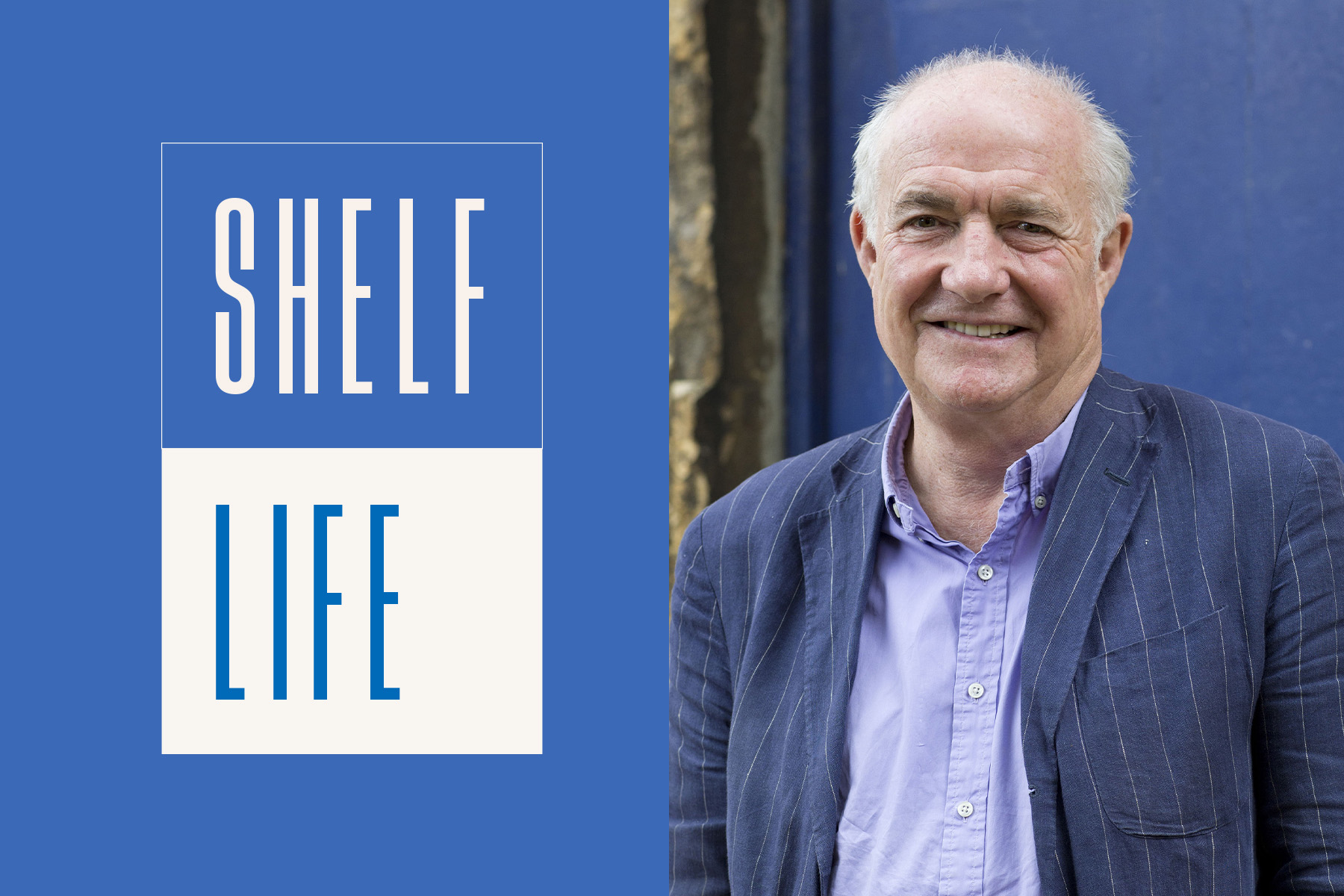
- Home |
- Search Results |
- Rick Stein: ‘I was in awe meeting Ted Hughes’
I grew up on a farm in Oxfordshire and I was lucky that my mother was very keen on reading to me as a child, though it was the sort of thing that might be considered a bit old-fashioned these days: Kipling's Just So stories, The Jungle Book and Treasure Island, which I also read to my children. It's a great tale, but the language is quite archaic. I suppose books like that have a lasting memory for me because it's about West Country ports and smugglers and pirates and things.
I first discovered Brideshead Revisited in my early 20s when I was at Oxford University. It seems silly to say now, but I went there as a “mature” undergraduate – 22 or 23. I'd spent time travelling the world before that, getting involved in all kinds of bits and bobs, whereas everyone else was straight out of school. That made me feel rather inferior. It was so intensely competitive, intellectually, and I didn’t really fit into that. I spent a lot of time at parties not doing the right things, then took a bit of a dive after I left.
One of the reasons Evelyn Waugh was such an inspiration to me is that he didn’t fit at Oxford in some ways either; I left Oxford with quite a bad third-class degree, as indeed he did. I loved his early books, which are so funny and irreverent, but Brideshead was later on and much more thoughtful. He was very keen on being a converted Catholic. I liked all that thinking he did about religion.
I’ve been to Sicily a few times to film, and once stayed in the house where Giuseppe di Lampedusa wrote his only book, The Leopard. It’s about this very important time in Italian history when [the revolutionary] Garibaldi and the whole country is about to be unified.
The novel is about this powerful Duke going through these phases of decline because Sicily is about to become part of Italy. It’s full of wonderful physical descriptions of wealth and grandeur and the palaces he lives in, but always with this sense of decay. Right from the beginning, the Duke finds a dead soldier in his garden and the smell attracts this Great Dane called Bendicò who becomes a key character. It’s a novel about observing life and death and one you can keep rereading, because it’s a series of vignettes. Like many of my favourite books, my mother introduced me to it.
I didn’t actually read A Brief History of Seven Killings by Marlon James – I listened to it. It’s one of those audiobooks where they’ve really cracked the actors in it. There’s more than one person narrating, and much of it is in Jamaican patois. The richness of the language is amazing. It’s a bit like Shakespeare: lots of creative swearing and obscenity.
The stuff that goes on in the book is shocking. During the Seventies in Jamaica there was a lot of political upheaval, and the story is full of murder and cruelty, and a lot of sex. But there's also this heroic quality to the characters. It centres around an assassination attempt on Bob Marley and shows how important he and reggae music was to the country. It's an incredibly elaborate and complicated and creative piece of writing that gives you various different viewpoints on the same series of events.
I spent a lot of my life in Australia, and I’ve read quite a lot of Tim Winton’s books. What I like about all of them is the physical descriptions of the country; he’s such a good writer. Breath is about surfing, which I did enough of when I was young to realise how addictive it is; the mixture of fear and triumph it gives you, and the immense danger surfers can put themselves in without noticing it. I am lucky enough to go to Western Australia frequently. When I met my second wife, I went swimming at a beach for hours. Only afterwards did she tell me it was full of sharks! Breath captures the scenery of Australia beautifully, but also has a nasty undertow to it, a theme of “man against the elements”.
Poetry has continued to be an important thing to me throughout my life. Ted Hughes used to come into my restaurant in the Eighties. He was very big and tall and distinguished-looking. Having read The Iron Man to my kids I was slightly in awe of him, but I said hello. I carry an anthology of his around with me. But the reason I’m choosing the Oxford Book of English Verse was that it was the version my mum always referred to. If you’re going to have an anthology of poetry, it’s probably the best one.
I remember a friend saying to me once: poetry is the room you go into when there’s an earthquake. I mostly reach for it in times of trouble; it’s still world to go to when things are falling apart. I love Philip Larkin: they fuck you up your mum and dad / they may not mean to but they do. It’s that sort of thing that makes you realise whatever you’re going through has been gone through so many times before, right?
Rick Stein At Home is out now.
What did you think of this article? Email editor@penguinrandomhouse.co.uk and let us know.